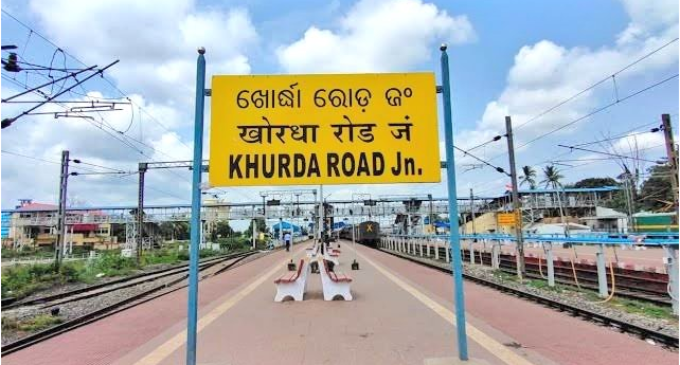PM Modi lays foundation stone for redevelopment of 508 stations, 25 in Odisha

Redeveloped stations will have better facilities for passengers, including women and Divyangs
By Dr Rama Chandra Behera
Bhubaneswar, Aug. 6: Prime Minister Narendra Modi on Sunday laid the foundation stone for the redevelopment of 508 railway stations, including 25 in Odisha, under Amrit Bharat Station Scheme.
The entire redevelopment work will be taken up at an estimated cost of Rs 24,470 crore.
The 25 stations in Odisha will undergo massive transformation with world-class modern amenities for the passengers.
The 25 stations in Odisha, among others include three stations in Bhubaneswar and its adjoining areas. They include Khurda Road Junction, Mancheswar and Lingaraj station.
“Around 1300 major railway stations in India will now be developed as Amrit Bharat Railway Station. They will be re-developed in a modern way. Of these, work on the redevelopment of 508 Amrit Bharat Railway Stations begins today,” said Modi.
PM Modi further said that the focus of the entire world is on India and the world’s attitude towards India has also changed. There are two main reasons for this change- first, Indians brought in a full majority government after almost 30 years and second, the full majority government took major decisions and continuously worked for a permanent solution to the challenges, said Modi.
Union minister of railways Ashwini Vaishnaw said the government has done a lot for the development of railways in the past nine years. The redevelopment of stations is being done with a vision to meet the requirements for the next 50 years, he said.
According to Mr Vaishnaw, improving passenger amenities is one of the major focus areas. The redeveloped stations will have better facilities for passengers, including women and Divyangs with modern day equipment and rooftop plazas.
Apart from this, the stations will also boast well-designed traffic circulation, inter-modal integration and well designed signage for guidance of passengers. The design of station buildings will be inspired by local culture, heritage and architecture






